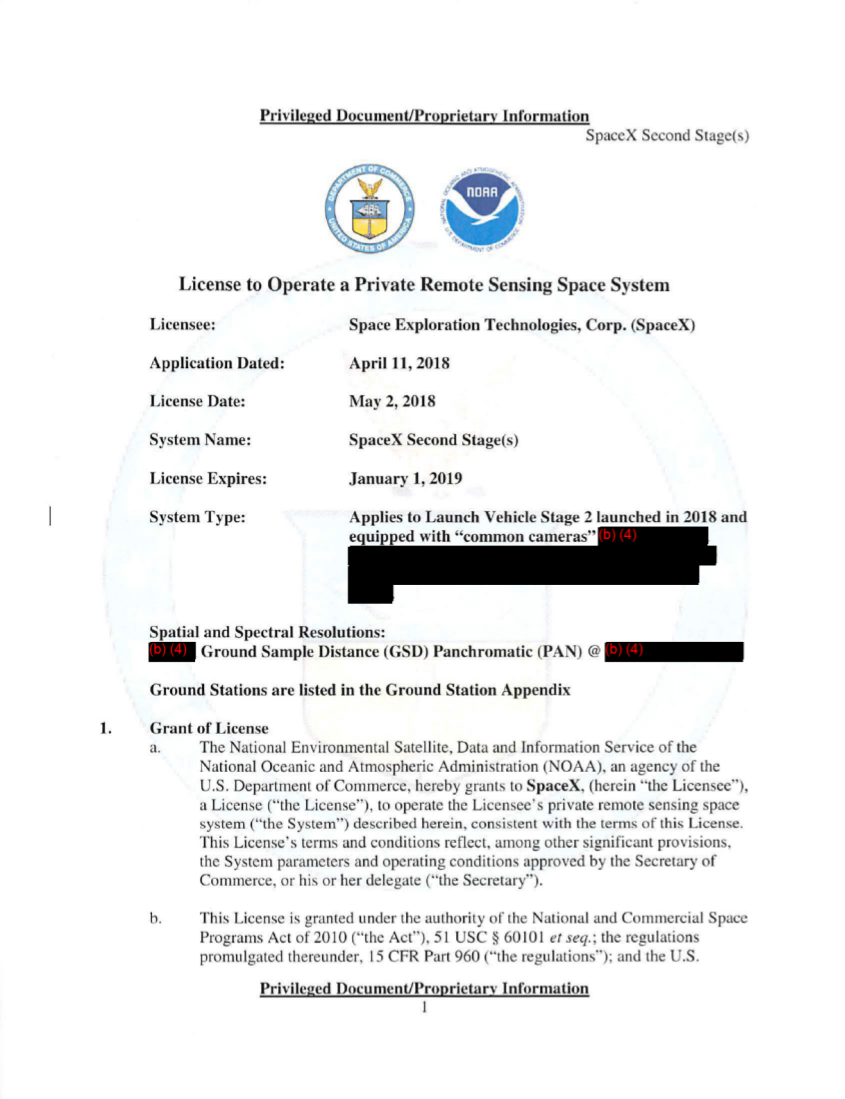SpaceX stopped broadcasting live video out the rear of the Falcon 9 2nd stage while the engine was firing after they were informed they needed a license to do so. This is further discussed in the questions (and the answers):
- Why does the NOAA require a permit to be issued to stream images of the earth?
- Why would NOAA restrict the ability of SpaceX to live stream the second stage?
This was one of the coolest aspects of their launches, seeing live video of an active rocket engine in space. Stage separation also is right up there. Given they could broadcast if they had the appropriate license, have or will they apply for a license and when will they resume the live onboard video broadcasts?
